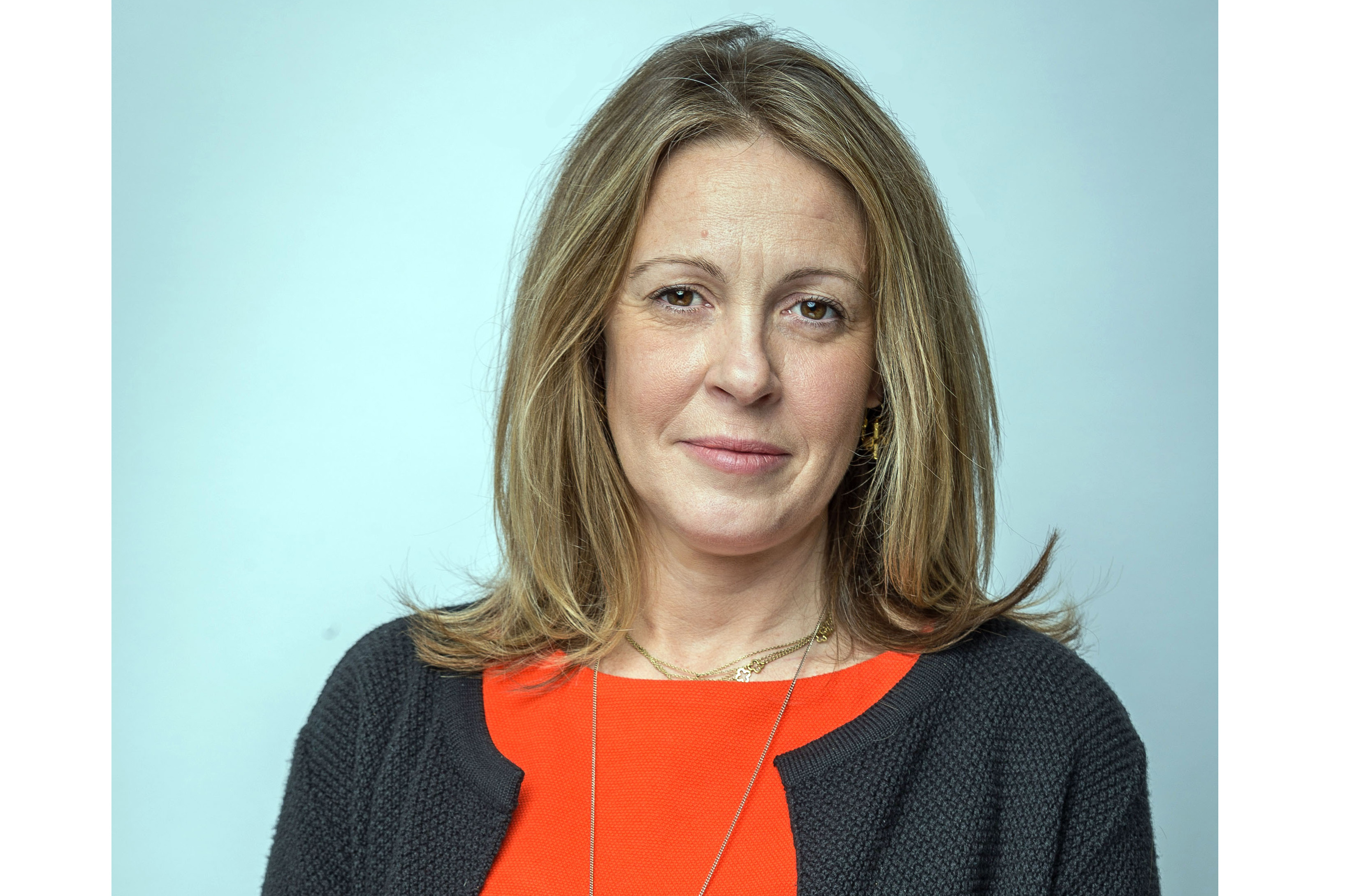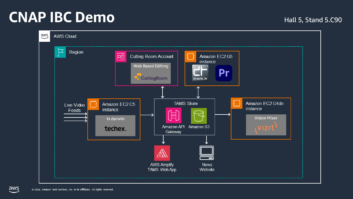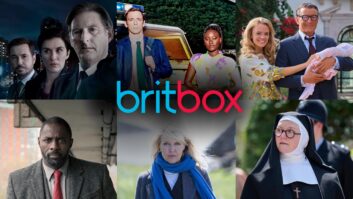
Kim Shillinglaw has been controller of both BBC Two and BBC Four for less than a year, but has been with the Beeb since 2006, first at BBC Factual, then children’s channel CBBC, and more recently as commissioning editor for science and natural history programming. At an event at BAFTA in London last month she chatted with journalist Benji Wilson about BBC Two and BBC Four’s roster of programming and future commissioning needs.
Shillinglaw is responsible for the creative and strategic direction of BBC Two and BBC Four, and described the former as “a grown up channel” watched by people “who are definitely not couch potatoes” and “who are instinctively curious.” The channel’s output spans drama, comedy, entertainment and factual, with successes including Dragon’s Den, The Apprentice and The Great British Bake Off. Shillinglaw recognised such successes, saying she was “fortunate to inherit a BBC Two in such good shape”, but that’s “there are always things to do” in order to “keep things fresh”. Although BBC Two is a mainstream channel and cannot be too niche, it must also cater for a variety of interests and passions. “There’s this space in the middle of that venn diagram I feel very positive about”, summed up Shillinglaw.
BBC Two has been home to an array of hugely popular comedy – The Office, Absolutely Fabulous, Shooting Stars and The Royle Family to name a few. “There was something incredibly of the moment about them”, commented Shillinglaw, attributing their success in part to their offering “a range of voices”. At BAFTA, a number of new comedy shows were announced, including Boy Meets Girl, the UK’s first transgender sitcom, and The Javone Prince Show, a sketch show fronted by the comedian, with – from the looks of the snippet shown at BAFTA – a largely non-white cast. It seems the “range of voices” in comedy is something Shillinglaw has been keen to preserve, despite also saying that “I love broad reach, big audiences”. As a result, she admits, “I’m sure some of those shows will work and some won’t”.
Will women be well-represented and contribute to the “range of voices” in these shows? “Has there been a lack of women [in comedy]?” Shillinglaw retorts. Miranda started on BBC, she points out, as did The Sarah Millican Show. It seems that rather than actively trying to ensure a strong female presence in comedy commissions, Shillinglaw asks simply: “did that make me laugh?” However, despite the success of the likes of Miranda and Sarah, panel shows are often captained by and comprised entirely of men, and male-fronted chat shows and stand-up still occupy prime time slots: Alan Carr, Graham Norton, Russell Howard. Although this is not acknowledged at the BAFTA event, Shillinglaw does admit that “If in two years time…you looked at our comedy array with no women in, I’d feel like I’d failed.”
Comedy was just one of the three genres threads Shillinglaw discussed, moving onto “the lifeblood of BBC Two”: factual programming. “Its my background,” she said, “I love factual television”. Original factual series like Wonders of the Solar System and The Normans have done well, and returning series Coast and The Hairy Bikers remain popular. Factual programming is “in really good shape” said Shillinglaw, but she remains committed to “pushing the new presenters [and] new stories”.
BBC Two has provided a platform in the past for showcasing factual stories that “no one else would have taken a risk on” which have proved a hit with audiences, grown “in that magical rare way” and have been promoted to primetime slots on BBC One: The Great British Bake Off and The Weakest Link are just two such examples. It may be easy to view BBC Two as forever remaining trapped in the shadow of its higher-profile cousin, debuting new shows which, when successful, quickly jump ship. However, Shillinglaw sees such movements as “part of BBC Two’s creative contribution”.
Some of the channel’s upcoming factual commissions were unveiled at BAFTA, including Chinese School, which sees Chinese teachers sent into British schools to see how students fare with a shake up in their studying; Britain’s Hardest Worker, examining low pay jobs, asking questions about work ethic and mobility; and Mobile Phone Idol, a look at the real-life annual event which aims to find the top salesperson in the UK. This entertainment-based factual programming seems to reflect Shillinglaw’s desire for BBC Two to “get closer to national conversation” and “become more contemporary”. The state of the UK’s education system and low paying jobs have undoubtedly led national conversation, especially in the run-up to the recent General Election. “I love things that feel like they’re touching thing I’m thinking about, we’re all thinking about”, Shillinglaw said, admitting also however, “I like an experiment”.
One such an experiment is the sharing of content across both BBC Two and BBC Four. BBC Young Dancer 2015 has played on both channels, with the early shows shown on BBC Four, as “there’s a depth in these shows which a BBC Four audience will really enjoy”, and the live final broadcast on BBC Two. “BBC Two brings the universe, BBC Four brings the atom” Shillinglaw summarised.
Perhaps less experimental is the upcoming raft of programming based on ‘inspiring passions’. Audiences have followed the stories of winners and losers in competitive shows devoted to a certain hobby or skill: including cooking with The Great British Bake Off and sewing with Sewing Bee. Hair returns to BBC Two, as judges seek out the best amateur hair stylist, The Naked Choir attempts to find the most passionate local singing groups, and The Great Pottery Throw Down will test the skill of ceramicists. Similar shows have been audience-pleasers in the past, though with very similar formats it is unclear how many more people and their ‘passions’ can be put to the test in the same style, before audiences seek something new. Shillinglaw conceded “its really difficult [making] shows in this space. Its very very difficult to put your finger on something that’s out there as a passion” which can then be “amplified for an audience”.
Experimental, “lovely”, “mainstream” with a “range of voices” watched by a wide audience who is “instinctively curious”: Shillinglaw’s description of BBC Two could explain the channel’s success in recent years. Sunday’s BAFTAs saw a number of gongs going to BBC Two programmes, including thriller The Honourable Woman, drama Marvellous and comedy W1A. Taking a chance on new content, choosing the right presenting talent and giving scriptwriters a platform for “their most distinctive, most personal work” have all contributed to the channel’s success, and will hopefully continue to do so as audiences have access to an ever-growing sea of content.







